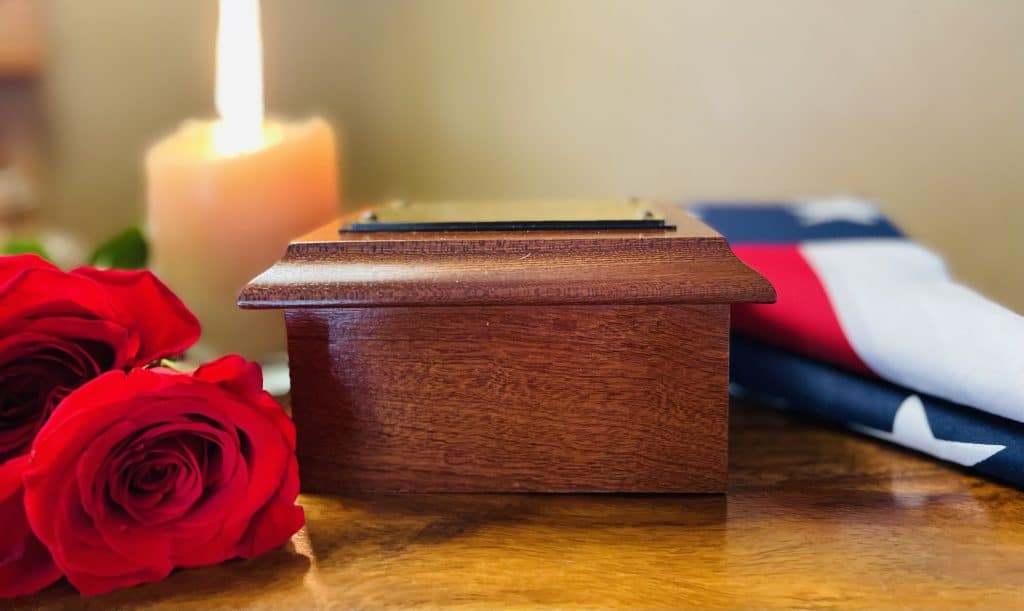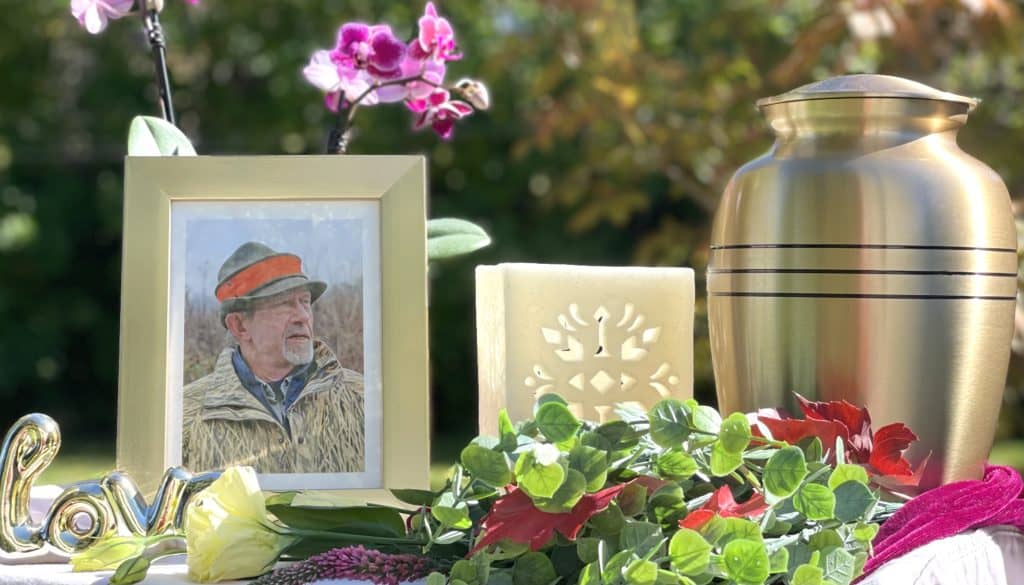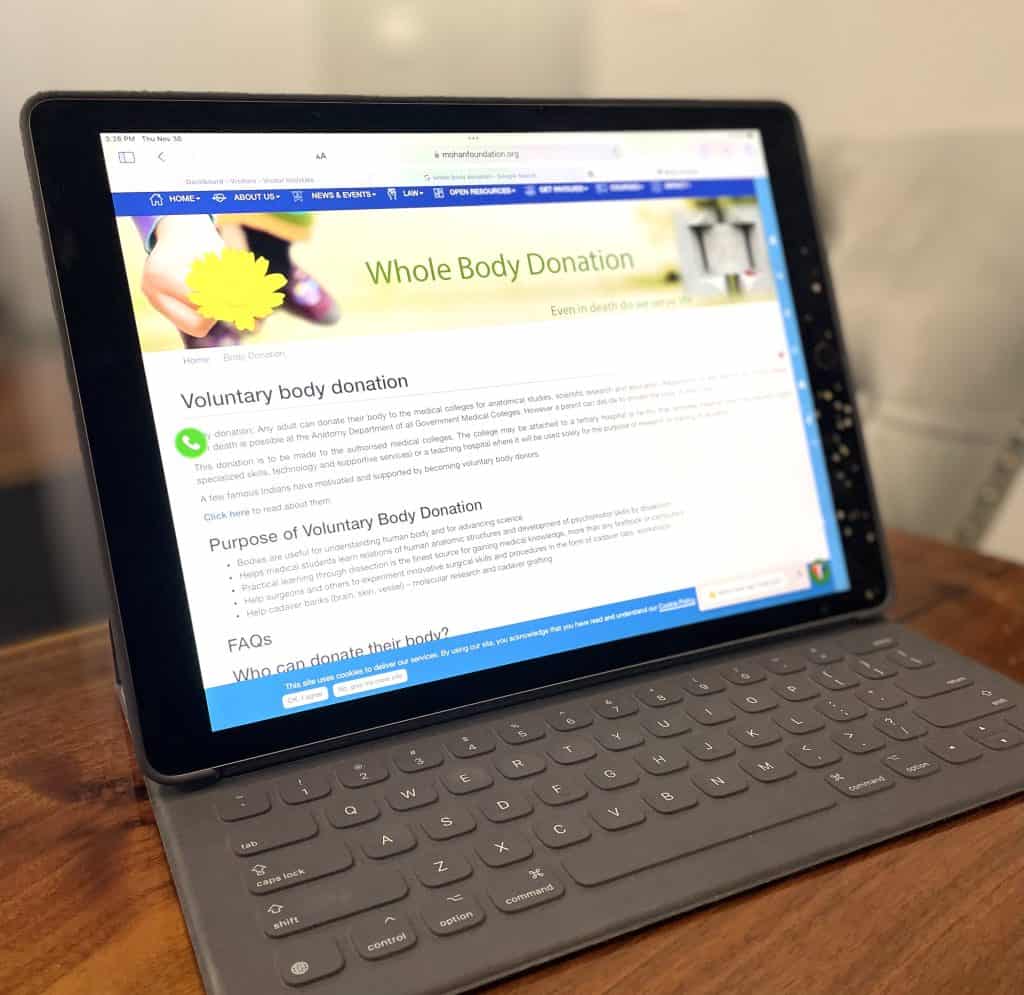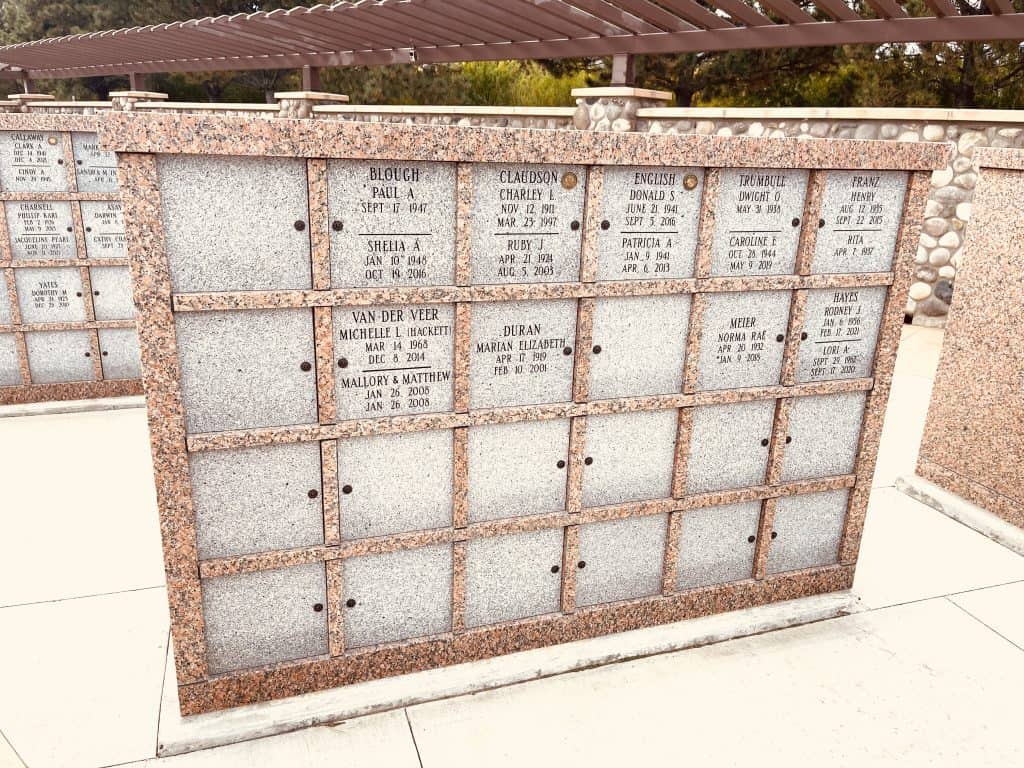This guide will help you understand cremation costs in Minnesota. We have included a price comparison for cremation services across major cities, practical tips for saving money, and essential information for arranging a cremation service in Minnesota.
As more families turn to direct cremation in Minnesota as a more affordable and flexible alternative, it’s important to explore the various options. Deciding on the right cremation service for your needs is a crucial step in planning.

Below is a breakdown of average & best direct cremation prices by area in Minnesota.
| CITY | BEST PRICE (DFS) | AVERAGE PRICE | CALL NOW - DFS |
|---|---|---|---|
| Bloomington | $1,195 | $2,090 | (612) 915-0972 |
| Brooklyn Park | $1,195 | $2,090 | (612) 915-0972 |
| Duluth | $1,600 | $2,818 | (218) 491-7011 |
| Minneapolis | $1,195 | $1,898 | (612) 915-0972 |
| Rochester | $1,195 | $2,378 | (507) 205-2877 |
| St. Paul | $1,195 | $2,205 | (651) 383-3327 |
| Woodbury | $1,195 | $2,205 | (651) 383-3327 |
Low-cost direct cremation prices above are offered by DFS Memorials – a network of affordable cremation service providers. Visit DFS Memorials – Minnesota to check other locations and prices.
The most economical service is known as a “direct cremation,” in which the deceased is taken into the care of a funeral home or cremation provider, all the necessary legal paperwork is completed, and the body is then cremated. There is generally no viewing or service with a direct cremation.
What are the different types of cremation service options and costs in Minnesota?

There are three main types of cremation choices available to families in Minnesota, and we have outlined the differences below.
Direct Cremation – a direct cremation involves the immediate cremation of the deceased without a formal funeral service being held. This basic type of cremation service has become popular due to its simplicity and cost-effectiveness. Minnesota’s average cost for a direct cremation in 2024 is $1,600*.
However, it is crucial to note that prices can vary significantly depending on the location, with major metropolitan areas like Minneapolis and St. Paul generally offering lower costs than rural regions.
This discrepancy can be attributed to increased competition, higher population density, and greater availability of cremation facilities.
Direct cremation is available in Minneapolis for just $1,195. Call (612) 915-0972 now.
Cremation Memorial Service – a cremation memorial typically refers to the cremation before a memorial service is held. The memorial service can be held at the funeral home, chapel, church, place of worship, or any chosen location. Some families today choose to hold memorial services at community venues.
The memorial service will usually be held with the cremation urn present as a focal tribute to the deceased. However, memorial services are also held without the cremated remains present.
It is not as simple to give an overview of cremation memorial services’ costs, as the ‘variable’ of the memorial service will dictate the final price. Much will depend on whether the funeral home and other ancillary services conduct the memorial, such as the type of cremation urn selected, flowers, photographs, and other tribute materials.
As a guide, a Cremation Memorial Service in Minnesota can cost between $3,585 – $4,778.

Full-Service Cremation Funeral – This type of service is a full-service funeral, with the cremation conducted after the funeral service. Some families want to hold a visitation, wake, or formal funeral ceremony, even if they choose cremation.
A viewing, visitation, or vigil can be held at the funeral home. Family and friends can gather for a funeral service, typically with the deceased present. Following the funeral ritual, the deceased is transferred to the crematory for cremation, and the cremation ashes are then returned to the family.
This cremation service is like a traditional funeral service, except the deceased is cremated after the ceremony and services instead of transferred to the cemetery for burial.
This option enables a family to have all the traditional funeral rituals without the additional expense of cemetery plot costs. Or a family may have a cemetery plot where they wish to inter the cremated remains.
As a guide, the average price for a Full Service Cremation Funeral in Minnesota is $7,517*.
Understanding average cremation costs in Minnesota today?

As discussed, cremation service costs vary depending on the type of service and the cremation service provider. So, quoting “average” costs can be difficult. One funeral home can charge $1,600 for direct cremation, yet another will charge $2,678.
They both offer the exact same service. This means that the higher end of the pricing spectrum can skew an “average” price for direct cremation.
Summary – Cremation Options & Costs
- Cremation services have gained popularity as cremation offers a much more affordable death care alternative. Whether the cost is the driving factor or for those families and individuals who want a simple, flexible, and more creative option.
- Direct cremation offers families an extremely cost-effective option to manage an immediate death or preplan for a simple cremation.
- Choosing cremation means that a family can personalize memorialization. There are many options for conducting a memorial service and creating memorial artifacts from cremated remains.
Pros:
- Offers the most economical cremation option.
- Can eliminate many ancillary funeral expenses.
- Can be arranged without the need to visit the funeral home for arrangement.
- It is easy to make arrangements from out-of-state & have cremated remains shipped to the family for a memorial service elsewhere.
- Allows for the disposition of a body to be handled in a quick yet dignified manner. And enable the family to postpone a funeral memorial service until later.
Cons:
- May require the family to submit online forms with the information required to process the cremation. This often helps a direct cremation provider collate data and manage staff arrangement time/costs.
- The cremated remains are usually returned in a temporary cardboard container unless you choose to add a cremation urn to your direct cremation service package.
Cremation Memorial Service

Pros:
- A family can still gather for a ceremony, but as the cremation is conducted first, the time frame for holding a memorial service is more flexible.
- Memorial services can be uniquely personalized, allowing the family to be creative in the design of a service.
- Offers a more affordable funeral celebration/ritual event.
Cons:
- As Memorial services, or a Life Celebration Memorial, can get quite creative, the ancillary costs for the memorialization can easily escalate.
Traditional Cremation Service
Pros:
- A funeral service is held at the time of passing and can help families to say goodbye.
- It will cost less than a traditional burial service.
- More funeral homes offer rental caskets for a cremation service to help reduce casket expenses.
Cons:
- As you are conducting a traditional service with the help of a funeral director, it can be easy to find that ancillary expenses can add up.
- A traditional cremation service is generally held fairly soon after the deceased passes. A direct cremation or cremation memorial can enable the family to defer the need for immediate services.
What Can You Do with Cremation Ashes in Minnesota?

After a cremation service, a family has several options for what to do with the cremated remains. This may depend on their preferences and beliefs or the costs associated with cremation memorialization choices.
Listed below are the main options for you to consider:
1. Keep the ashes at home: Many families choose to keep the ashes in an urn or a special container at home. This allows them to create a comforting presence and keep their loved ones nearby. Some families even display the ashes in a special area or create a memorial space.
2. Bury the ashes: Families can choose to bury the ashes in a cemetery or a designated burial plot. This provides a more permanent resting place and allows for future visits and remembrance. Aside from cemetery burial plots, more cemeteries offer dedicated cremation columbarium niches and bespoke memorial scattering gardens. Some gardens provide small plaques or benches to create a long-lasting tribute.

3. Scatter the ashes: Scattering the ashes can be a meaningful way to honor the deceased’s memory. Ash scattering is now a popular choice for many families. Scattering cremation ashes can hold great symbolism for many people. It represents releasing and returning a loved one’s physical remains to the elements, freeing their spirit. Scattering ashes can symbolize letting go, saying goodbye, and allowing the deceased to become part of the natural world.
These are just a few suggestions, and the decision ultimately depends on the family’s wishes and cultural or religious practices. It may be helpful to consult a funeral director who can provide guidance and support.
Remember that there is no timeframe for when or how to memorialize a loved one. So, if you are unsure, do not make a rushed decision.
What Minnesota Legislation Governs the Requirements for Cremation Arrangements?
In Minnesota, the laws governing cremations are primarily outlined by the Minnesota Mortuary Science Program. The Program regulates the requirements for the cremation process to ensure it is conducted safely and legally.
The main key points are:

Authorization: Before a cremation can occur, the person with the legal authority to decide on the deceased’s remains must provide written authorization. This is generally referred to as the Cremation Authorization.
Permit for disposition: A permit for disposition of the body is required for cremation. This permit is issued by the local registrar or the state’s vital statistics office. The funeral home or crematory typically handles the process of obtaining this permit.
Identification: Minnesota law requires that the deceased be properly identified and tracked throughout the entire process of cremation. This helps ensure the correct remains are returned to the family.
Documentation: Detailed records must be maintained throughout the entire cremation process, including information about the deceased’s identity, the date and time of the cremation, and any medical devices or implants present.
Cremation container requirements: Minnesota law does not require using a casket for cremation. Families can use a simple container made of combustible materials, such as a cardboard casket, or an alternative container specifically designed for cremation. The choice of container may depend on personal preference or any specific requirements set by the funeral home or crematory.
Crematory requirements: Crematories must meet specific standards and obtain the necessary permits and licenses to operate legally in Minnesota.
Disposition of remains: After the cremation, the cremains must be properly handled in accordance with the wishes of the deceased or their authorized representative.
It’s important to note that these requirements may vary slightly depending on the specific funeral home or crematory. It’s advisable to consult with a licensed funeral director or cremation provider to fully understand the legal requirements and procedures for cremation in Minnesota.
Do you have to employ a funeral director for a direct cremation? Can the family deal directly with the crematory?

Minnesota does not require you to involve a licensed funeral director in making or carrying out final arrangements.
However, some crematories in Minnesota require you to employ a funeral director to arrange cremation. If you don’t want to use a funeral director, you should make sure the crematory is willing to accept the body directly from the family.
In Minnesota, you need to obtain a certificate of removal from the Department of Health before moving a body from the place of death and before final disposition. (Minnesota Statutes §§ 149A.90 and 149A.93.) For instance, if someone passes away outside the home, this authorization is required to bring the body home for care. Similarly, if someone dies at home, permission is needed to move the body to another location for burial or cremation.
If you choose not to use a funeral director to carry out final arrangements, you will need to complete and file the death certificate yourself. Minnesota law requires you to file the death certificate with the state registrar of vital records within five days of the death and before final disposition. (Minnesota Statutes § 144.221 (2019).)
How long does it take for a cremation in Minnesota?
There is a 48-hour mandatory wait period after the death before a cremation can go ahead. Completing the legally required paperwork usually takes at least 24 hours. So, it is fair to say that it is usually 3-7 days for a cremation to be performed. (Longer if there are any issues with consent or issuing a death certificate)
The deceased will be sheltered in refrigerated storage during this time. A direct cremation service package generally includes refrigeration for up to 10-14 days. If the funeral home has to store the deceased for longer, there may be an additional daily fee for refrigeration.
The Cremation Process

The body is placed in a cremation chamber, also known as a retort. The chamber is heated to a high temperature (typically around 1,600 to 2,000 degrees Fahrenheit) using flames, gases, or a combination of both. This process reduces the body to bone fragments, which are then further processed into cremated remains or ashes.
After the cremation process is complete and the remains have cooled, the ashes are carefully collected from the chamber. Any metal or other non-combustible items, such as surgical implants or jewelry, are removed from the ashes. The ashes are processed to ensure they are finely ground and free of any remaining fragments.
The processed cremation ashes are then placed in a temporary container or an urn, chosen by the family or provided by the funeral home.
What is the least expensive cremation service in Minnesota?
Direct cremation is the least expensive option. It is when cremation is carried out without a service or ceremony. It is a simple, dignified cremation of the deceased with minimal fuss and at a minimal cost.
After everything has been taken care of, the cremated remains are returned to the next of kin. A family can hold a memorial service when ready, which can even be conducted at home for much less.
Direct cremation takes care of the immediate need to handle the disposition of the deceased. Still, it can also enable the family to defer the need for a memorial service or allow them to craft their own bespoke personalized ‘send off.’
Are there any extra fees added to a low-cost cremation service package?

The service charge for a direct cremation is listed on the funeral provider’s General Price List. It should include the funeral director’s basic services, collection and transfer of the deceased, completion of the legal paperwork, and the cremation. It usually includes a simple cardboard cremation container and a temporary urn.
The funeral director will pay third-party fees to the local county to obtain the death certificate and pay for any permit charges. These fees are added to the direct cremation service fee.
The fee for a death certificate is $13.00 in Minnesota. In Minnesota, a death must be registered with the state registrar of vital statistics within five days after the death and before the body is buried or cremated. (Minnesota Statutes § 144.221)
You may require more than one death certificate, as you must send them off to multiple institutions, organizations, or government offices simultaneously.
Most authority bodies that need evidence of the death, i.e., a life insurance company, will require an original copy of a death certificate. Certified copies of a death certificate are usually available within ten days after the death.
Additional copies of a death certificate can be obtained from the Minnesota Department of Health.
There can also be additional charges if any of the below services are required:
- Residential collection
- Removal of a pace-maker
- Overweight surcharge (above 250 pounds)
- Family arrangement consultation
- Mailing of cremated remains
What about a “no-cost” cremation in Minnesota?

What is sometimes called a “free” cremation or “no-cost” cremation is a whole-body donation. Once the donation is performed, the remains are cremated free of charge. However, in some cases, there are costs associated with transporting the deceased and obtaining death certificates.
Donating your body to medical science has been an end-of-life choice for some time. However, it has undoubtedly gained more popularity in recent times. For many, it now seems a valuable disposition method, commonly called an “anatomical gift.”
Several national organizations offer an anatomical gift program through which you can donate your body to science to benefit future generations.
The University of Minnesota and Mayo Clinic also operate whole-body donation programs.
University of Minnesota, 3-102 Nils Hasselmo Hall, 312 Church Street SE, Minneapolis, MN 55455. bequest@umn.edu. 612-625-1111. Click here for more information.
Mayo Clinic, Body Donation Program, Mayo Clinic, Stabile Building 9-22, 200 First St. SW, Rochester, MN 55905. MCDonorProgram@mayo.edu. 507-284-2693. Click here for more information.
Do understand that an anatomical donation cannot always be accepted at death. It can be affected by the needs of medical and research institutions and transportation services at the time.
Visit our Body Donation page to read further about this option.
Does Minnesota offer any financial assistance with cremation costs?
Minnesota assists with funerals and burials at the county level. The program covers basic cremation unless you can show that the deceased did not want to be cremated.
Federal Resources: Social Security may pay a $255 lump-sum death benefit if qualifying, and certain veteran’s benefits are available.
County/Municipality Resources: The available assistance varies by county but generally ranges from $1,500 to $3,500. Eligibility is based on financial need, and the municipality may attempt to recover funds from the deceased’s estate if there is one. Applications must be submitted within 14 days of death.
What happens if I cannot pay for a cremation in Minnesota?

As covered above, the family can explore federal, state, and county programs to see if the deceased and surviving family are eligible. The responsibility to pay the funeral bill falls to the immediate next of kin if the deceased had no pre-paid funeral plan or life insurance. This can be very stressful if you lose a family member and become responsible for the funeral arrangements without any resources.
Find your local Social Services Department.
Check out this guide to What to do if I cannot afford a funeral to learn about other possible funding and charity organizations.
What happens if the deceased is at a Medical Examiner’s Office in Minnesota?

If the deceased is at the coroner’s office, you must arrange for a funeral director to collect the body when the coroner signs the release form. You must authorize the funeral director to collect your loved one and transfer him or her into their care.
Most funeral directors deal with the coroner’s office regularly, and the ME issues the authorization and permit to cremate, which can make the arrangements easier. For this reason, some funeral homes can offer a budget direct cremation when handling remains from the Medical Examiner.
Find a Coroner or Medical Examiner in Minnesota
How to Make a Complaint if you are dissatisfied with a Cremation Service Provider
If you had a bad experience with a cremation service in Minnesota, you must notify the correct licensing and legal authorities. This way, appropriate action can be taken, and other consumers can be protected. Below, we have detailed some steps for registering a complaint.
1. Gather information: Firstly, ensure you have all the necessary details about the cremation provider, such as their name, address, and contact information. Additionally, note down the specifics of your complaint and any supporting documentation you may have.
2. Contact the provider: Start by contacting the cremation provider directly. Explain your concerns and see if they can address and resolve the issue to your satisfaction. If they are unresponsive or you are not satisfied with their response, proceed to the next step.
3. File a complaint with the Minnesota Mortuary Science Program: The Board oversees funeral and cremation services. You can file a complaint with the Minnesota Board in writing to the Minnesota Department of Health, Health Regulation Division, Attn: Mortuary Science Section, P.O. Box 64882, St. Paul, Minnesota 55164-0882.
Do note: The Program can only take action if it finds sufficient evidence that the funeral director has violated funeral legislation in implementing cremation regulations. If the complaint concerns a dispute regarding cremation fees, please note that the Program has no jurisdiction over the fee amount charged, only the mandated disclosure of the fee, as per the FTC Funeral Rule.
If your complaint is regarding fees charged or any other consumer issue, you may wish to make a formal complaint to the Federal Trade Commission. You can file a complaint with the FTC online or call 1-877-FTC-HELP (382-4357).
The FTC cannot resolve individual problems for consumers, but it can act against a funeral/cremation company if it sees a pattern of law violations.
4. File a complaint with the Minnesota Attorney General: Another option is to contact the Attorney General’s Office. Online complaints can be submitted here.
MN Attorney General’s Office, 445 Minnesota St Ste 1400, Saint Paul, MN 55101.
5. Seek legal advice: If the issue remains unresolved, or you feel further action should be taken, you might consider consulting with an attorney specializing in funeral law or consumer protection. They can provide legal guidance and help explore your options for further action.
If you have further questions about cremation services or costs in Minnesota that we have not answered, please get in touch with us. We are here to assist you.

